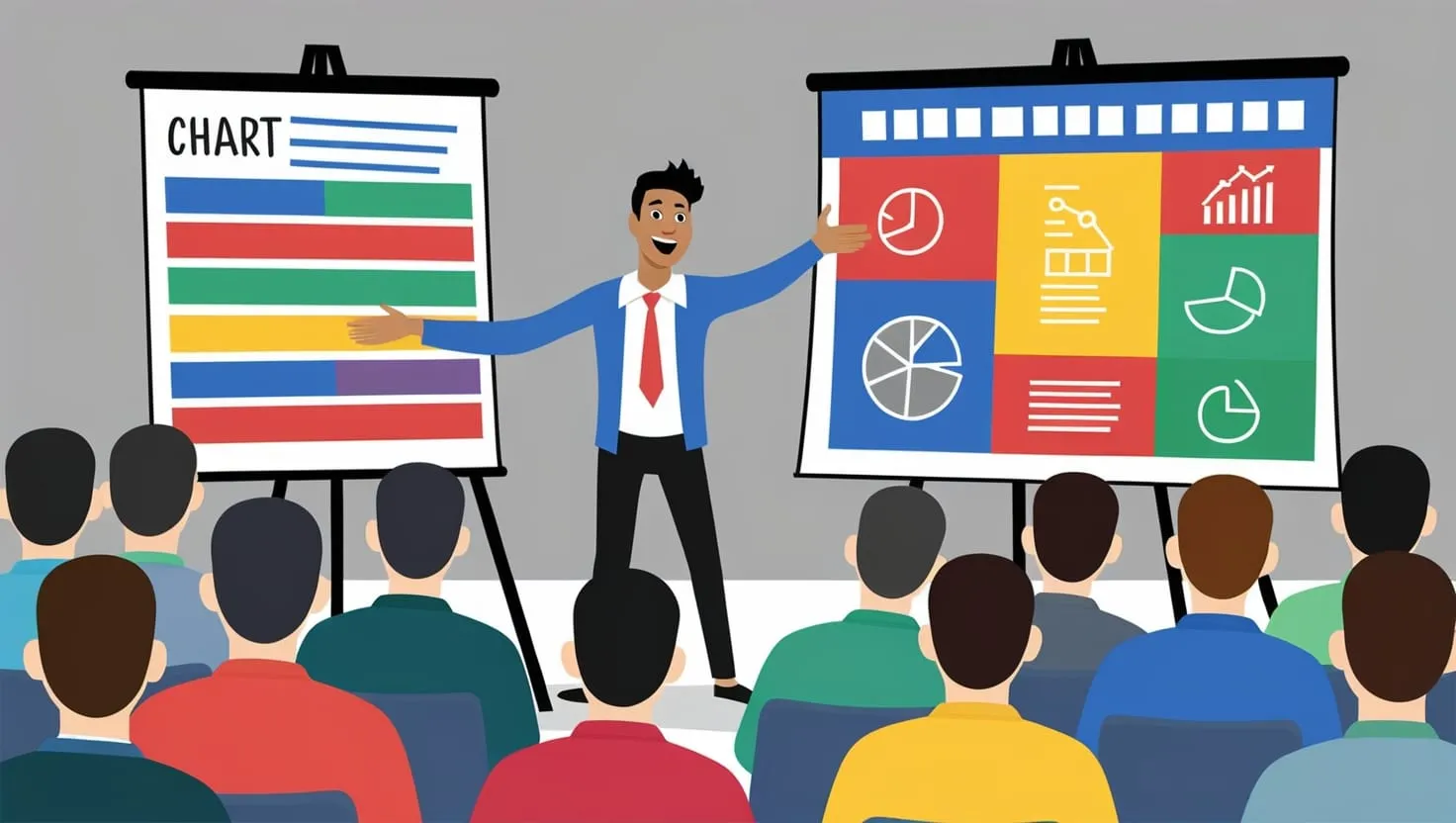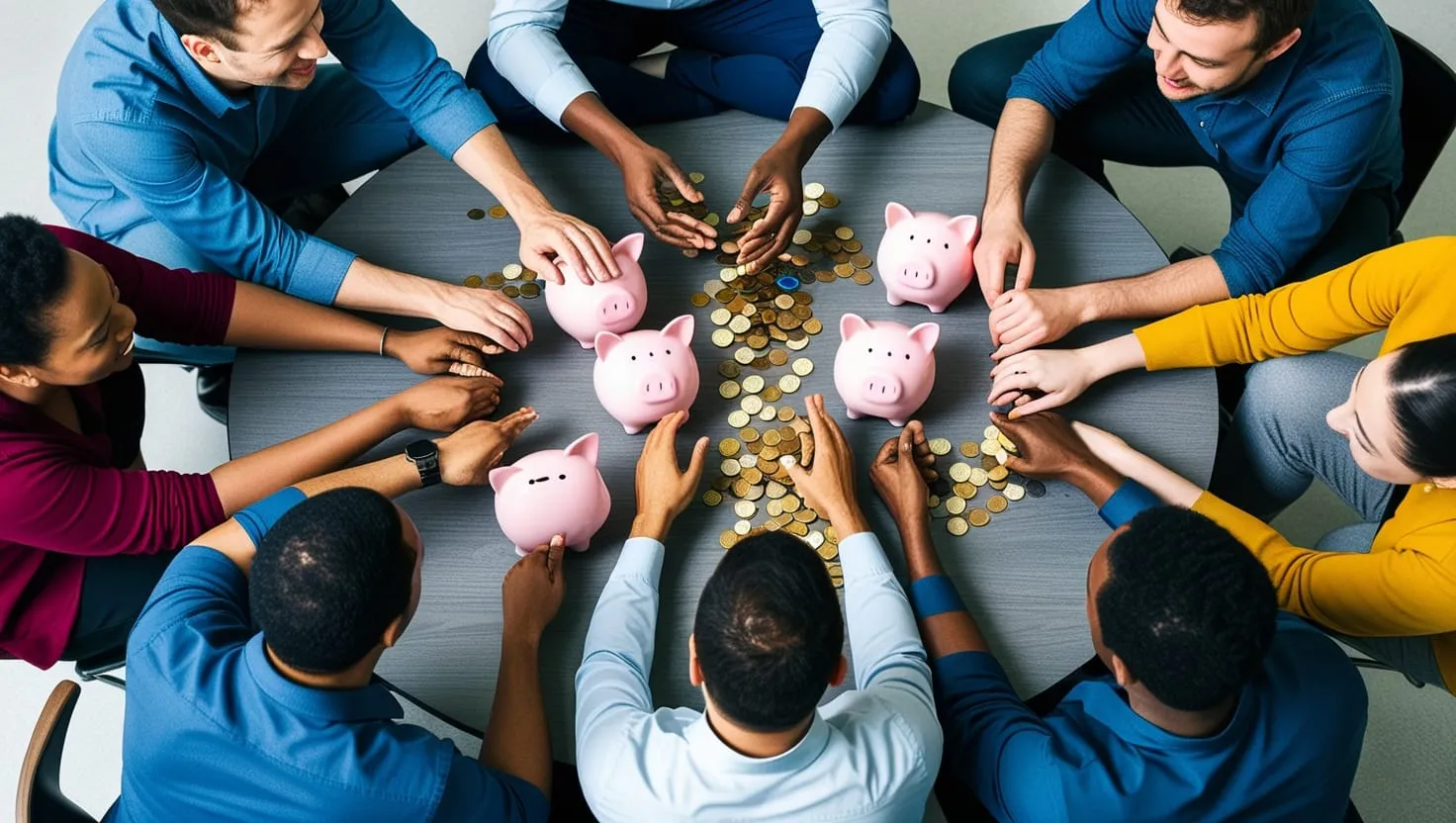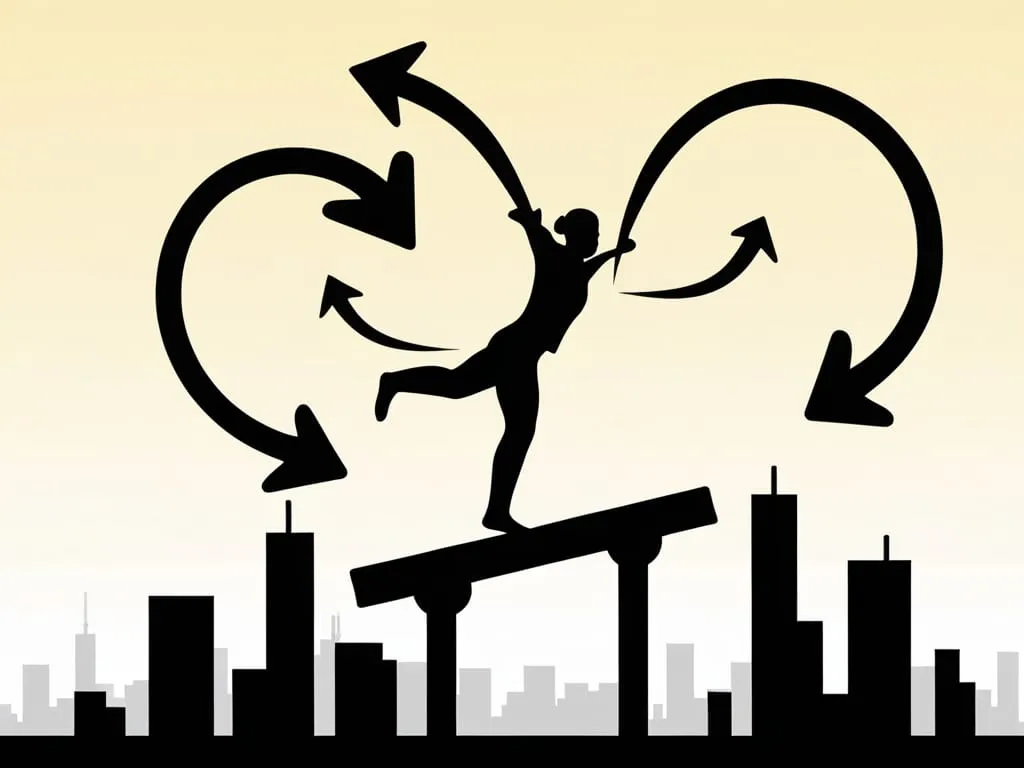Navigating the Storms: Building Emotional Resilience in Finance
Life's a rollercoaster, isn't it? One minute you're on top of the world, the next you're plummeting faster than you can say "market crash." But here's the thing - it's not about avoiding the ups and downs. It's about learning to ride them like a pro. That's where emotional resilience comes in, especially in the wild world of finance.
So, what's this emotional resilience thing all about? Think of it as your personal shock absorber. It's not about being some emotionless robot. Nah, it's about feeling all the feels but not letting them knock you off your game. Picture a financial analyst facing a sudden market nosedive. With solid emotional resilience, they're not pulling their hair out. They're taking a deep breath, analyzing the situation, and making smart moves.
Building this superpower starts with getting to know yourself. It's like being your own personal detective. What makes you tick? What sets you off? Once you've got that figured out, you're halfway there. Try jotting down your thoughts in a journal or taking a few minutes each day to just sit and reflect. It's amazing what you can learn about yourself when you actually take the time to listen.
Now, don't forget about your body. Your physical health is like the foundation of a house. If it's shaky, everything else is gonna come tumbling down. So hit the gym, get your veggies in, and for Pete's sake, get some sleep! You'd be surprised how much easier it is to handle stress when you're not running on empty and three cups of coffee.
And hey, don't try to go it alone. We're social creatures, after all. Having a solid crew to back you up can make all the difference. In the finance world, having a mentor or a supportive team can be a game-changer. They're your lifeline when the market's going crazy and you feel like you're drowning in spreadsheets.
Speaking of crazy markets, let's talk about keeping your cool. People with high emotional resilience have got this down to an art. They're not letting their emotions run the show. Instead, they're taking a step back, thinking things through, and making decisions based on logic, not panic. It's like being the eye of the storm - calm and collected while everything's swirling around you.
Flexibility is key too. Life's gonna throw curveballs at you, and in finance, those curveballs can come fast and furious. Being able to adapt, to see things from different angles, that's what separates the pros from the amateurs. It's about finding the silver lining, even when things look pretty dark.
Now, let's get real for a second. We all mess up sometimes. The key is not beating yourself up about it. That's where self-compassion comes in. Treat yourself like you would a good friend. Be kind, be understanding. Learn from your mistakes, sure, but don't let them define you.
And speaking of learning, that's what it's all about, isn't it? Having a growth mindset means seeing every challenge as a chance to get better. It's like leveling up in a video game. Each obstacle you overcome makes you stronger for the next one.
When the world goes topsy-turvy (hello, global pandemic!), that's when emotional resilience really shines. It's what helps you keep your head when everyone else is losing theirs. It's about accepting that yeah, things are uncertain, and that's okay. You can still function, still make good decisions, still help others.
So, how do you actually build this resilience? Here are some tricks of the trade:
Start a gratitude practice. Every day, write down three things you're thankful for. It sounds cheesy, but it works. It's like training your brain to look for the good stuff.
When you're stuck on a problem, try looking at it from different angles. Pretend you're giving advice to a friend. Sometimes a fresh perspective is all you need.
Take time to really enjoy the good moments. We're so quick to dwell on the negative, but savoring the positive can help balance things out.
Get to know yourself. What sets you off? What calms you down? The better you understand your own reactions, the better you can manage them.
Build your support network. Nurture your relationships. These are the people who'll have your back when things get tough.
Let's look at some real-life examples. There was this financial advisor who lost a bunch of her clients' money in a market crash. Ouch, right? But instead of throwing in the towel, she used it as a learning experience. She owned up to her mistakes, figured out what went wrong, and came back stronger than ever. Her clients respected her honesty and resilience, and many stuck with her.
Or take this young investor who kept striking out in the stock market. Instead of getting discouraged, he treated each loss as a lesson. He focused on what he could learn rather than beating himself up. Over time, this approach turned him into a savvy and successful investor.
In the end, emotional resilience isn't just a nice-to-have in finance - it's a must-have. It's what helps you weather the storms, make smart decisions under pressure, and come out the other side even stronger. Whether you're a Wall Street veteran or just starting out, working on your emotional resilience is one of the best investments you can make.
So, here's your challenge: Start small. Pick one thing from this article and try it out for a week. Maybe it's starting a gratitude journal, or maybe it's reaching out to build your support network. Whatever it is, give it a shot. You might be surprised at how much of a difference it can make.
Remember, building emotional resilience is a journey, not a destination. There'll be ups and downs, good days and bad. But with each challenge you face, you're getting stronger, more resilient, more capable of handling whatever life (or the market) throws your way.
So go on, take that first step. Invest in your emotional resilience. It might just be the best financial decision you ever make. After all, in the wild world of finance, your greatest asset isn't your portfolio - it's you.






